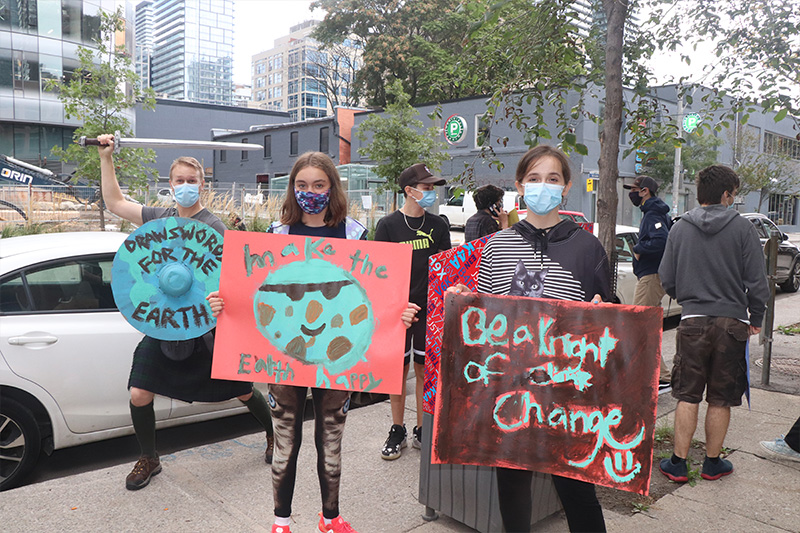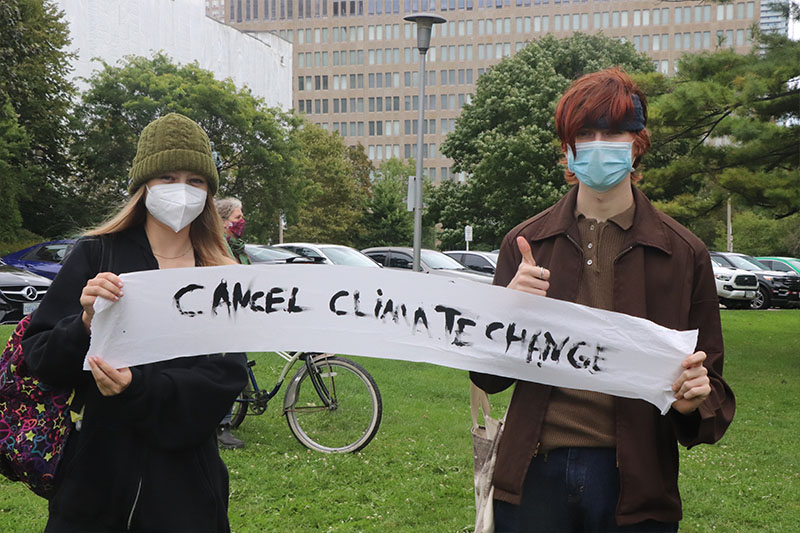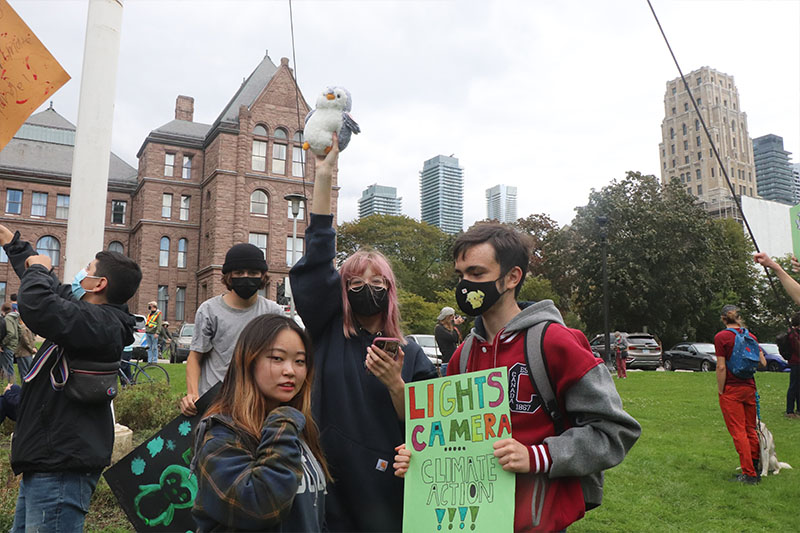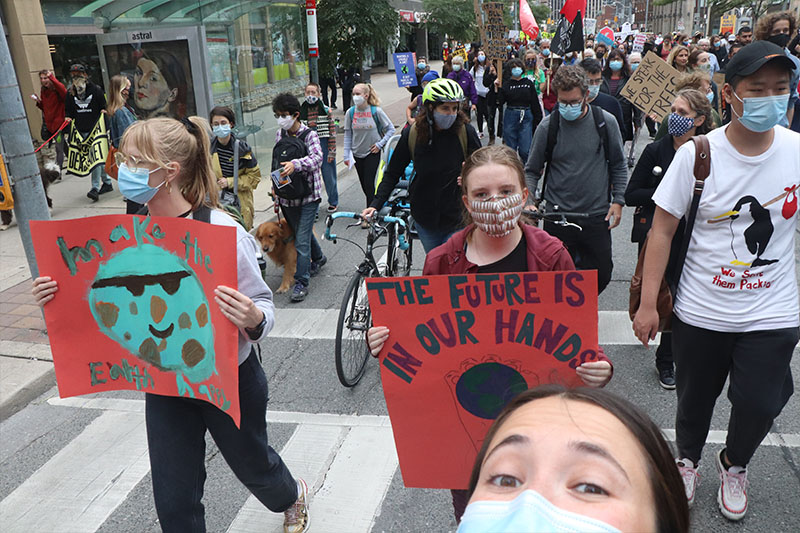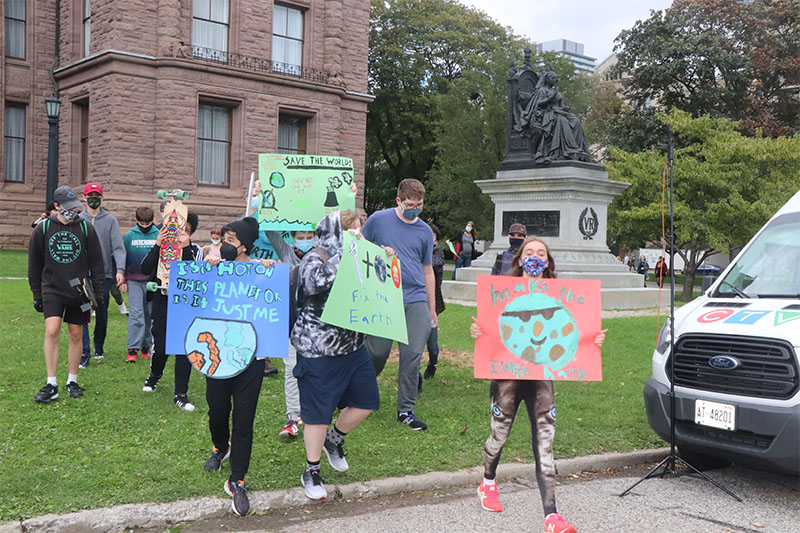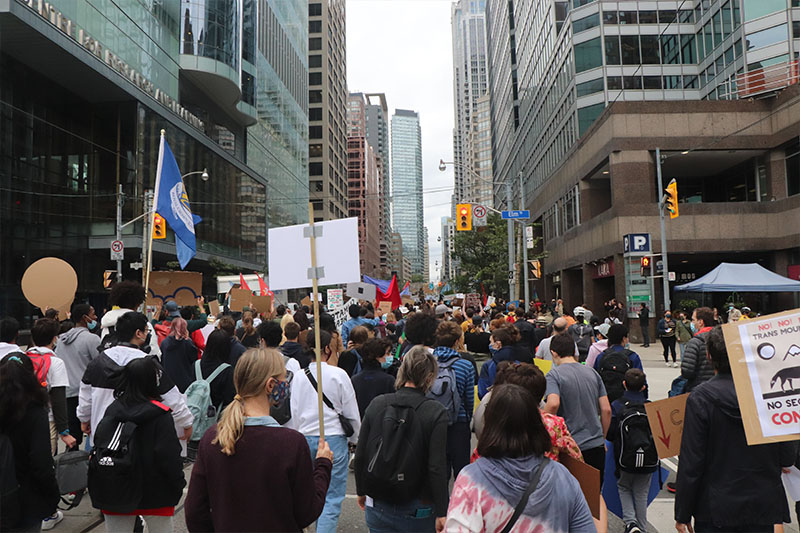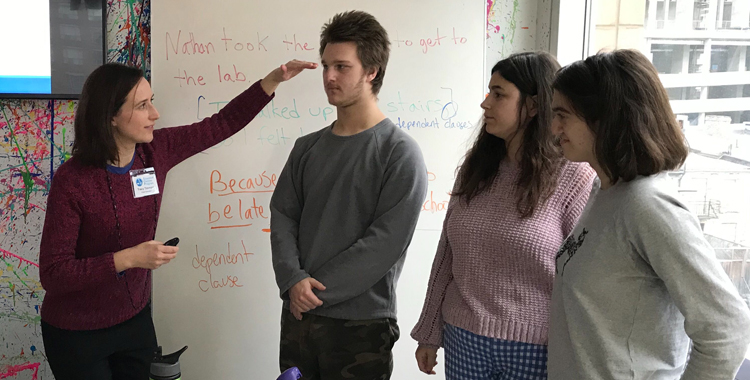Nearly three years ago, about 30 students from our school attended the first Global Climate Strike led by Fridays for Future, with several YMCA Academy students even speaking from the podium that day. And since then, we have continued working to empower our students in demanding action on the climate crisis facing our world.
In this spirit, and in line with our commitment to learning that is cross-curricular, experiential, and concerned with social and environmental justice, our students’ learning and activities this past Friday revolved around climate justice. While field trips, assemblies, mixed-grade advisory groups, and cross-curricular learning have long been things that we try to incorporate into our lessons and days, our new schedule of Friday “Flex Days” allows for these to be a regular, consistent part of our students’ learning experience.
To begin the day, students from both the middle school and high school spent the morning learning about climate change, climate justice, and what we might do about these. The presentation and discussion was then followed by a particularly fun, and sometimes messy, activity: sign making for the climate march. In the afternoon, most of the high school headed to Queen’s Park for the youth-led Global Strike for Climate Justice (where COVID-19 health protocols were in place).
We are of course fortunate to be located so close to the action, but we are also lucky to have such a passionate and engaged group of students at our school. At the march, this passion and energy was on full display: from leading chants to taking on the task of carrying the giant inflatable globe creation on loan from Artists for Real Climate Action, all with a combination of enthusiasm, respect, and a willingness to keep learning from the experience. A handful of students remained at the school, but did not miss out on opportunities for action, as they created posters teaching us about young climate activists or wrote letters to government leaders.
Despite the criticism teenagers can get for being materialistic or glued to their devices, or the accusations of not knowing the value of things, many young people are clearly aware of the impacts of unrestrained human activity on the environment, and of how this threatens our very existence. What they may not have learned is to limit value only to that which has been deemed measurable in our economy — and it now seems clear that this is something we should be grateful for. On this day, as on so many others, the students were also the teachers.
Check out more photos from this event on our Facebook page!

